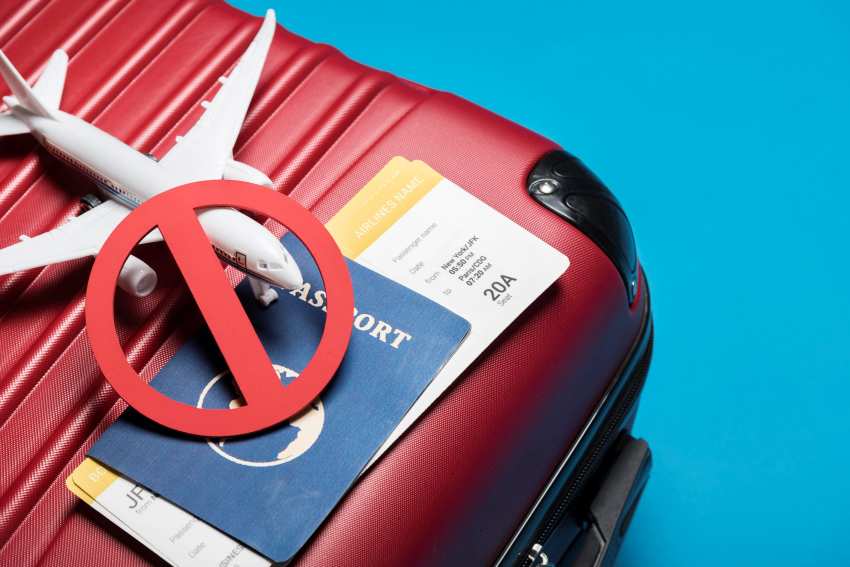Inside the Identity Swap: How People Start Over-Legally and Illegally - Newstrail
The concept of has long fascinated the public. Whether dramatized in espionage thrillers or revealed in true-crime documentaries, the act of abandoning one identity and assuming another exists in both myth and reality. But not all identity swaps are illegal. Some are lawful, verifiable, and executed with the help of experts.
In today’s surveillance-heavy world, vanishing without a trace has become more difficult than ever. And yet, people still try—some for good reason, others for personal gain, and a few to escape justice. , a leading authority on legal identity change and second citizenship services, delves into the complexities of identity swaps, revealing the risks, strategies, and solutions for those seeking a fresh start.
At its core, an identity swap involves abandoning one’s original identity and assuming another, either through legal means (such as a court-sanctioned name change or obtaining a second citizenship) or through fraudulent means (such as identity theft, forged documents, or biometric manipulation).
There are four common motivations behind identity swaps:
These motivations often overlap, creating a complex web of ethical and legal challenges.
In 2010, a South African engineer fled an abusive relationship and feared retaliation due to her testimony in a criminal case involving organized crime. She worked with a consulting firm to legally change her name and relocate through a in St. Lucia.
A decade later, she lives peacefully in the Caribbean, with no criminal record or legal violations. Her identity change was both legal and ethical, and it proved that legitimate pathways exist for those in danger.
Unfortunately, not everyone takes the legal route. The dark web, underground brokers, and corrupt officials have facilitated identity theft and identity swapping for decades.
Criminals often assume the identities of:
This type of fraud has become increasingly sophisticated, utilizing synthetic identities that blend real and fake data.
Black-market networks in Eastern Europe, South Asia, and Latin America produce high-quality forgeries. Some include:
In some cases, insiders within passport offices or police departments have created genuine documents for individuals who do not exist. The EU and Caribbean nations have conducted multiple investigations into these practices.
In the early 2000s, a Russian intelligence officer living in Canada was exposed after a years-long investigation. He had assumed the identity of a deceased Montreal child and obtained Canadian citizenship using forged records. He married, worked in finance, and had children.
His downfall came when biometric database integration flagged inconsistencies in his travel history and passport scans.
He was deported—but not before nearly two decades of living a “normal” life.
Thanks to advances in biometric data, facial recognition, and cross-border intelligence sharing, identity fraud is becoming increasingly difficult to execute. Yet loopholes persist:
However, each failed fraud attempt now comes with , as identity manipulation is often tied to terrorism, money laundering, or espionage.
Amicus International Consulting offers legitimate pathways for individuals seeking to change their identity, particularly when personal safety, freedom, or privacy is at risk.
Each identity change is tailored to comply with , anti-money laundering rules, and international security standards.
A Middle Eastern journalist persecuted for exposing corruption applied for asylum in Europe. His request was denied, leaving him vulnerable to further consequences. He later contacted Amicus and began the process of acquiring a second citizenship through Antigua and Barbuda’s investment program.
The process took nine months. He legally changed his name, secured a new passport, and now works for a human rights NGO—no longer a refugee, but a respected global advocate.
Not all identity changes are equal. There are clear ethical distinctions between:
Amicus draws firm ethical lines and rejects clients seeking purely criminal concealment. Instead, they focus on
The future of identity swaps lies in synthetic identities—crafted personas built from:
These identities are often exploited for fraud, espionage, or financial gain, posing a new threat to law enforcement.
Some experts believe that AI-generated “ghosts” may already exist in government databases, complicating global surveillance efforts.
Amicus warns that such creations, while sophisticated, are —and far less durable than a legal transformation.
In Amicus’ experience, people pursue identity swaps for reasons more complex than escape. Common themes include:
Each case is evaluated through before a transformation plan is proposed.
A senior banker from Nigeria, falsely accused in a political embezzlement scandal, faced asset seizure and death threats. Though never convicted, he was “named and shamed.”
Amicus developed a legal reinvention strategy:
He now runs a nonprofit abroad, away from political retaliation.
Second passports are essential tools in lawful reinvention. They provide:
But they must be through:
The illegal acquisition of passports—through bribery or stolen identities—carries severe penalties and is not endorsed by Amicus.
Even after a legal identity change, online remnants of one’s past may remain. Amicus offers:
This step is crucial for clients moving into new careers, relationships, or countries.
The firm follows a strict, 6-phase process:
In 2025, trying to fake your death or assume a stranger’s identity is no longer a clever strategy—it’s a fast track to prison. Governments have upgraded their systems. The risk is too high. But that doesn’t mean reinvention is impossible.
believes people deserve second chances through legal, ethical, and sustainable means. The right identity change is not a mask—it’s a rebirth rooted in the law.
Whether you’re a political exile, a survivor of violence, or someone simply seeking a new beginning, the choice is clear:
Phone: +1 (604) 200-5402
Email: [email protected]
Website: www.amicusint.ca











